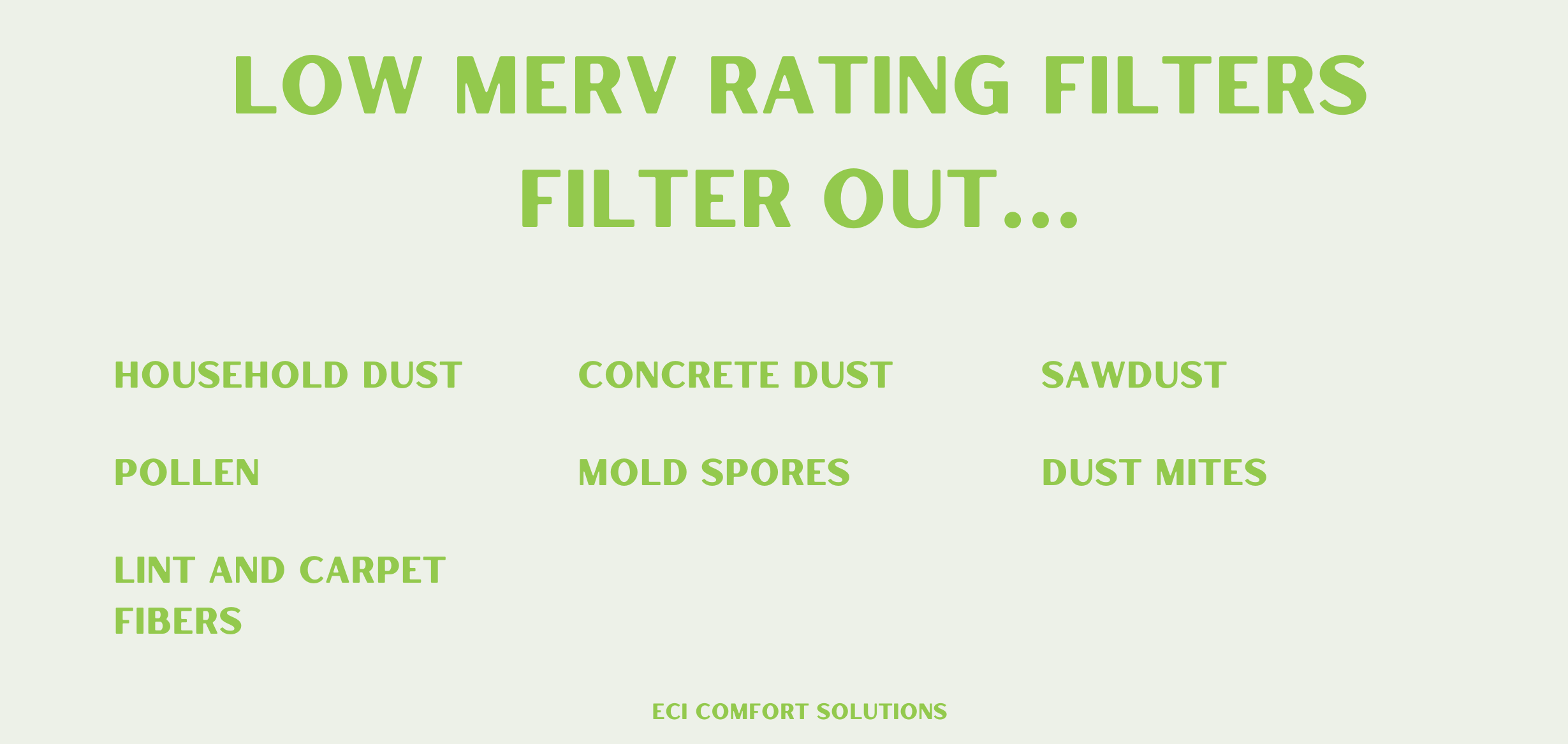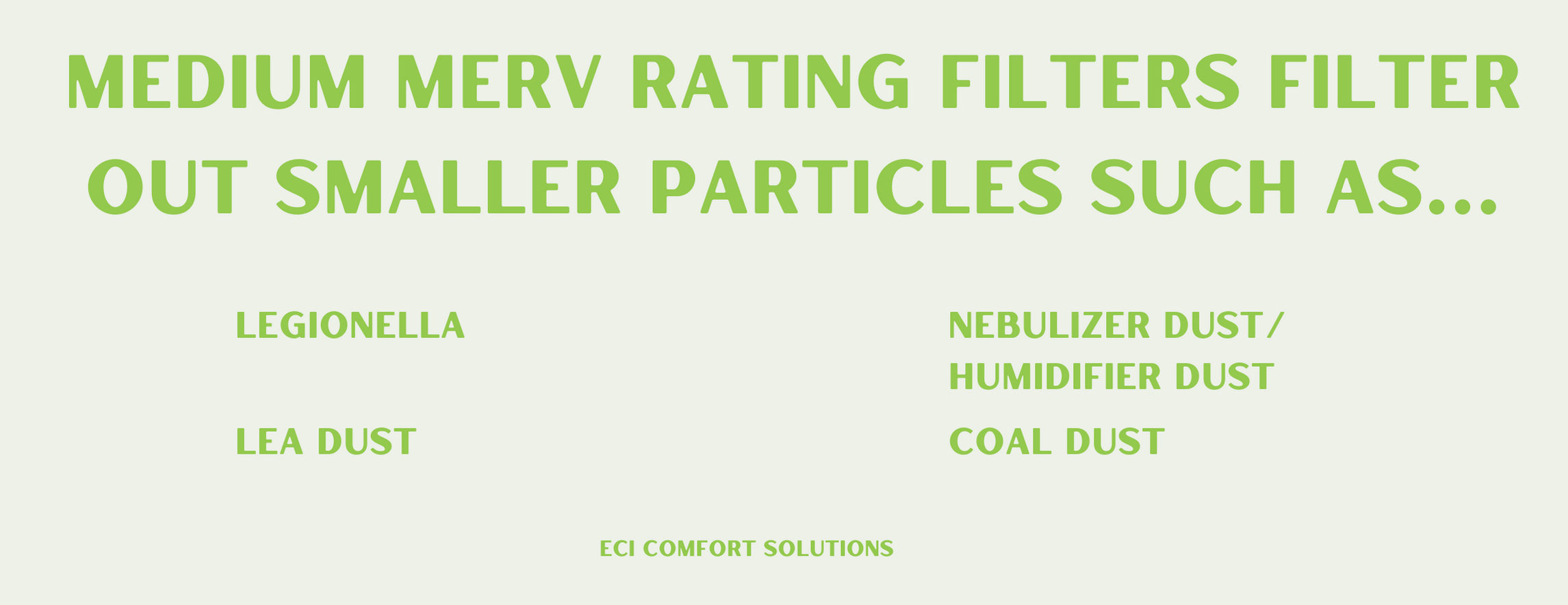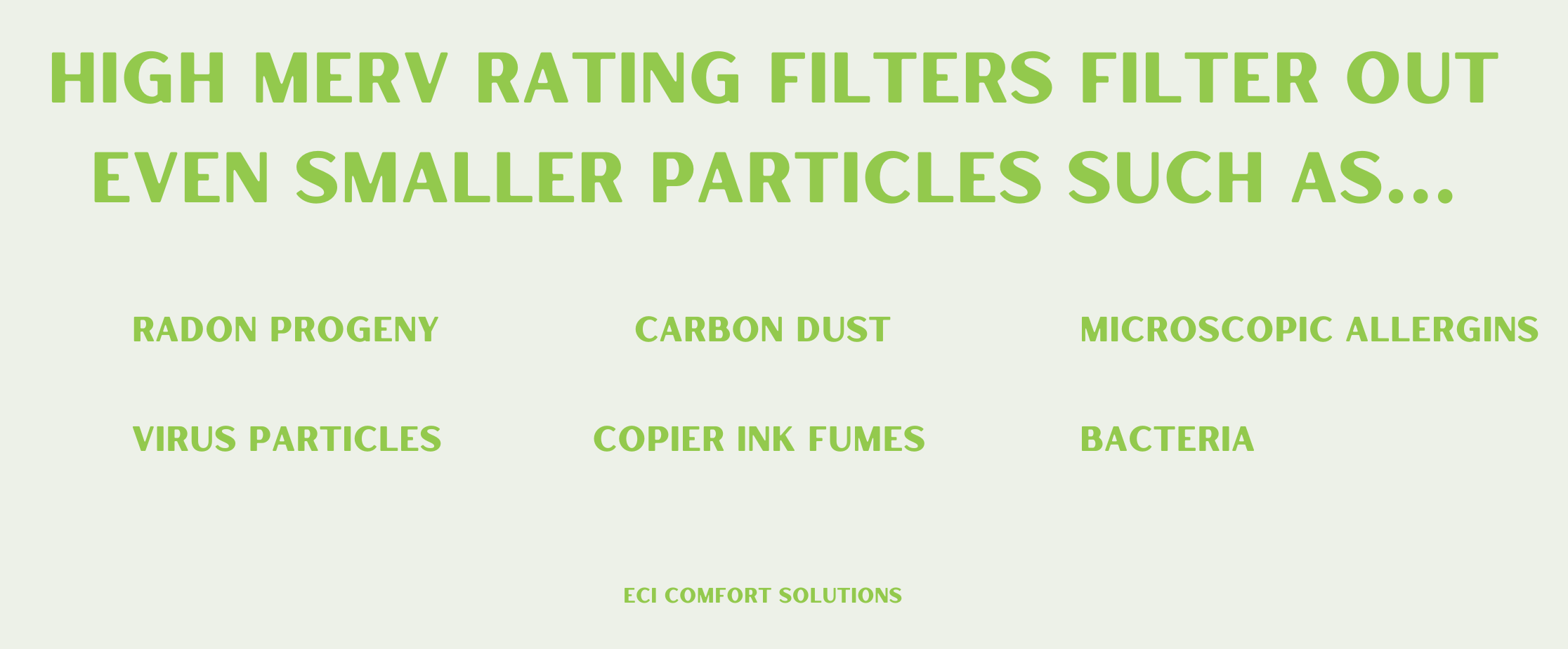Minimum Efficiency Rating Value (MERV) filters are a type of filter used in homes, businesses, and buildings to improve indoor air quality. The ratings on this filter range from one to 20 with one being the least effective and 20 being the most effective. They are designed to remove particles from the air that can cause allergies, asthma, and other respiratory problems.
What Are MERV Filters?
MERV filters are pleated filters made from a variety of materials such as fiberglass, polyester, and natural fibers. They are designed to capture and trap airborne particles such as dust, viruses, pollen, and pet dander. The higher the MERV rating, the more efficient the filter is at removing these particles from the air.
Continue reading to see a breakdown of the different MERV ratings and what they mean.
MERV Rating
MERV rating determines an air filter's efficiency at trapping larger or smaller particles, depending on the value assigned to it.
For instance, an air filter with a MERV rating of one to four might serve well to trap large particles such as carpet and upholstery fibers, while a MERV 13 filter can trap smaller particles like virus carriers.
The easiest way to simplify and break down the differences in these filters is to group them into three different categories.
.png?width=1640&height=924&name=MERV%20RATINGS%20(1).png)
1. Low MERV, average air quality
Low MERV filters are the most commonly used filters in households and businesses. These filters are typically made from fiberglass and are designed to remove larger particles such as dust and pollen. Good air quality can be maintained with regularly changed filters on the low end of the MERV rating scale. Lower MERV filters are more affordable because they are not as dense as high MERV-rated filters and require less specific materials to filter out the smaller particles and microbiology.
MERV filters with a rating of one to eight are commonly used for residences and businesses. They are good for filtering the usual suspects when it comes to poor air quality.

2. Medium MERV, high air quality
MERV ratings between eight and 12 are built to create high indoor air quality. These filters can filter out particles as small as one micron and are capable of removing particles such as bacteria and tobacco smoke from the air. Hospitals and laboratories use these specific filters to keep out all possible harmful particles and viruses in their buildings. Residential and commercial buildings use these filters as well to purify and clean the air. Other laboratories or parts of hospitals such as an ICU, operating rooms, or pharmaceutical lab, will require a MERV 12 filter.

3. High MERV, medical grade air quality
MERV filters higher than 12 are available for facilities that require extremely clean circumstances and when air quality is critical. MERV filters reach up to 20, even though using one above 16 is pretty uncommon. The tiny particles this filter decomposes do not directly interfere with human life.

Filtering the air in your home or building to improve indoor air quality will create healthier surroundings and more comfortable indoor environment. Households do not need high rated MERV filters; in fact, choosing too high of a rated MERV filter can put a strain on your HVAC system. Use the information above to indicate what MERV filter is best for you before making a decision.
If you live in the Delaware Valley/Greater Philadelphia area and would like to find comfort within your home, visit our website or give us a call at 215 - 245 - 3200 to learn more.




